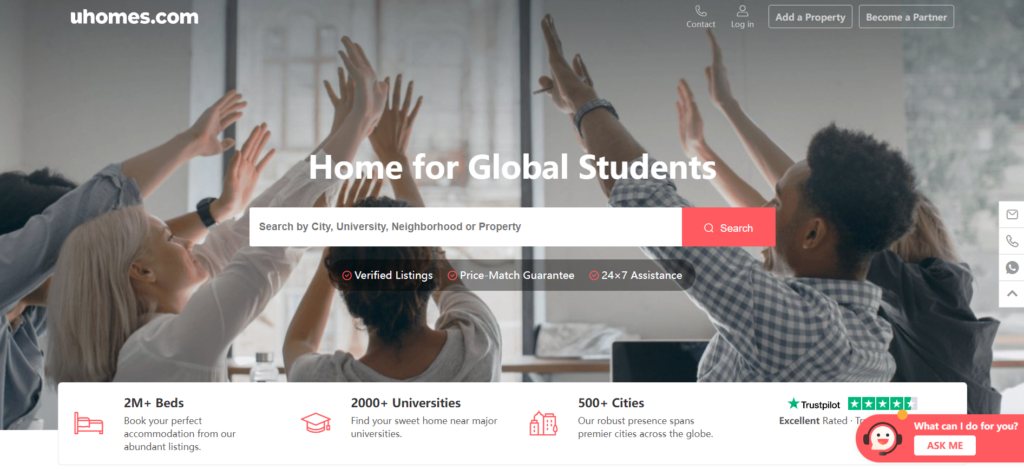So, you’re a student hunting for a part-time job in Portsmouth? We’ve got your back! In this guide, we’ll provide you with insider tips and valuable resources to help you land the ideal part-time gig that suits your interests and schedule. From retail and hospitality to other exciting sectors, get ready to explore the abundant job opportunities waiting for Portsmouth students like you!
Leveraging School Resources
When it comes to finding part-time jobs in Portsmouth, students often overlook one of their most valuable resources: their own educational institution.
Schools in Portsmouth, such as the University of Portsmouth, provide many part-time job opportunities for students. The official website is a valuable resource for finding job vacancies and positions offered by the university.
Here, I will briefly describe what part-time jobs can be found through university resources, using the University of Portsmouth as an example.
Part-Time Jobs Available at the University of Portsmouth
Many departments within the University regularly advertise student roles throughout the academic year, providing a chance to gain employability skills on-campus while accommodating your study schedule. Some examples of student roles available at the University include Student Ambassador, Postgraduate Ambassador, Residence Life Assistant, Telephone Interviewer, International Student Ambassador, Exchanges and Study Abroad Ambassador, and Confirmation and Clearing Assistant. These positions offer diverse experiences and contribute to a well-rounded skill set while allowing you to work alongside your studies.
Find Job Vacancies at the University of Portsmouth
At the University of Portsmouth, students can easily access part-time job opportunities through the official website. The university’s website provides information on the positions they offer and current vacancies. Additionally, the University of Portsmouth Students’ Union also provides part-time job opportunities for students. By exploring these resources, students can find suitable part-time positions that complement their academic journey.
Part-Time Jobs for International Students at the University of Portsmouth
International students can also find part-time positions on campus at the University of Portsmouth. And there are some positions that are particularly suitable for international students, such as International Student Ambassador.
As an International Student Ambassador, your responsibilities will include assisting with campus visits, creating social media content, organizing social activities, participating in recruitment events, and performing office admin tasks. You may also have the option to work in your home country during vacation periods. To apply, you should be a student based on campus, available to work a minimum of 3 hours per week, and flexible with some weekend and evening availability.
Benefits of Working Part-Time On-Campus
- Convenient location on campus
- Flexible schedules that accommodate your classes
- Enhanced campus involvement and sense of community
- Opportunities to build professional networks with faculty and staff
- Gain relevant work experience in a familiar academic environment
- Develop transferable skills such as time management and teamwork
- Potential for career advancement within the university
- Access to on-campus resources and facilities
- Convenient access to support services and academic assistance.
Trying Walking In
In today’s digital age, the power of walking into a potential employer’s office holds a unique impact. By personally visiting a company or organization, you can showcase your enthusiasm, confidence, and initiative.
This direct approach allows for face-to-face engagement with hiring managers, leaving a memorable impression that sets you apart from other candidates. The walk-in strategy is particularly effective for small businesses or local establishments that may not heavily rely on online applications.
Don’t underestimate the power of the walk-in – it can open doors and lead to unexpected opportunities.
Showcasing Enthusiasm and Initiative
By personally walking into a prospective employer’s office, you demonstrate enthusiasm, confidence, and initiative. This direct approach sets you apart from other candidates and shows your genuine interest in the position.
Creating a Memorable Impression
The walk-in strategy allows you to leave a lasting impression. Personal interactions convey professionalism and interpersonal skills, making you more memorable to employers.
Effective for Small Businesses and Local Establishments
The power of the walk-in is particularly effective for small businesses and local establishments. It showcases your commitment and understanding of their values and operations.
Opening Doors to Unexpected Opportunities
A walk-in can lead to unexpected opportunities. Even if there are no immediate job openings, your proactive approach may result in future consideration or referrals to other relevant opportunities.
Networking with Friends
Networking with friends can be a valuable asset in expanding your professional connections and opportunities. Friends often have diverse backgrounds and experiences, which can lead to introductions and referrals to potential employers or industry contacts. By leveraging your existing relationships, you can tap into their networks and gain access to hidden job opportunities or industry insights.
Additionally, networking with friends provides a comfortable and supportive environment to exchange ideas, seek advice, and learn from each other’s experiences. Remember to reciprocate and offer support to your friends as well, as networking is a mutually beneficial process. So, don’t underestimate the power of networking with friends – it can play a significant role in your career advancement.
Key Consideration when Looking for Part-Time Job in Portsmouth: Contract Types
In the UK, there are various contract types that determine work hours and responsibilities. Understanding these options and workers’ rights is crucial before signing any document. Understanding your rights and the specific terms of each contract is essential when considering part-time jobs or internships.
Fixed-Term Contract
Ends on a specific date, with the same rights as permanent employees, but specific benefits may vary.
Flexitime Contract
Highly adaptable, allowing for customized work schedules, subject to employer approval.
Temporary Contract
Has a start and end date, with the same rights as permanent staff, offering flexibility and opportunities for gaining experience.
Permanent Contract
Common and full-time, providing job security, benefits, and training opportunities.
Part-Time Contract
Similar to a full-time contract, but with fewer hours, offering worker rights, including pension and holiday entitlements.
Full-Time Contract
Requires working 35 or more hours per week, with exceptions to the maximum weekly working hours.
Internship Contracts
Provide work experience or shadowing opportunities, with different pay requirements depending on the type (part of education or classified as a worker).



Key Consideration when Looking for Part-Time Job in Portsmouth: Salary and Tax
Minimum Wage in the UK
The UK government updates the minimum wage annually, with the current rates as of April 2023:
Age 23 and above: £10.42 per hour
Ages 21-22: £10.18 per hour
Ages 18-20: £7.49 per hour
Ages 16-17: £5.28 per hour
Apprentice (under 19 or in the first year of apprenticeship): £5.28 per hour
The Living Wage in the UK
The living wage, set by the Living Wage Foundation, is based on the average cost of living. It applies to workers over 18 years old and is currently £10.42 per hour. However, paying the living wage is voluntary for employers, although over 5000 UK businesses have adopted it through the Living Wage Foundation’s campaign.
The Living Wage Foundation introduced the London living wage to account for the higher cost of living in the city. The current London living wage is £11.95 per hour for workers over 18 years old. However, employers are not legally required to pay this wage.

Other Ways to Save Money as a Student in Portsmouth
Being a student in Portsmouth is an exciting journey filled with new experiences, friends, and academic pursuits. However, let’s face it, managing your finances can sometimes be a challenge. Here are some tips and tricks that will keep your wallet happy while still enjoying everything this Portsmouth has to offer.
- Take advantage of student discounts offered by local businesses and establishments.
- Cook your meals at home instead of eating out to save on food expenses.
- Utilize public transportation or consider cycling or walking to save on transportation costs.
- Opt for second-hand textbooks or explore online resources for affordable or free learning materials.
- Look for free or discounted entertainment options such as student events, local attractions, and cultural activities.
- Use professional rental platforms like uhomes to search for student accommodation in Portsmouth.
- Stay conscious of your utility usage and find ways to save on energy bills.
- Join student clubs and societies that offer cost-effective social and recreational activities.
- Plan your budget and track your expenses to identify areas where you can cut back and save money.



FAQ
Yes. Seasonal work during winter and summer breaks can be a great option for students. Many shops hire seasonal staff during the Christmas rush, while the hospitality and tourism industries offer opportunities in the summer. It allows for more flexible working hours, but students should consider balancing work and academic commitments, especially during exam periods.
Tuition fees for UK courses vary based on study level and location. On average, international undergraduate tuition fees range from £11,400 to £38,000 per year, while international postgraduate tuition fees range from £9,000 to £30,000 per year. It’s important to refer to university or college websites for accurate and updated information regarding tuition fees for specific courses.
Tuition fees for UK courses differ based on the level of study and the location within the UK. For instance, humanities and social sciences degrees generally have lower costs, while laboratory and clinical degree programs tend to be more expensive.









